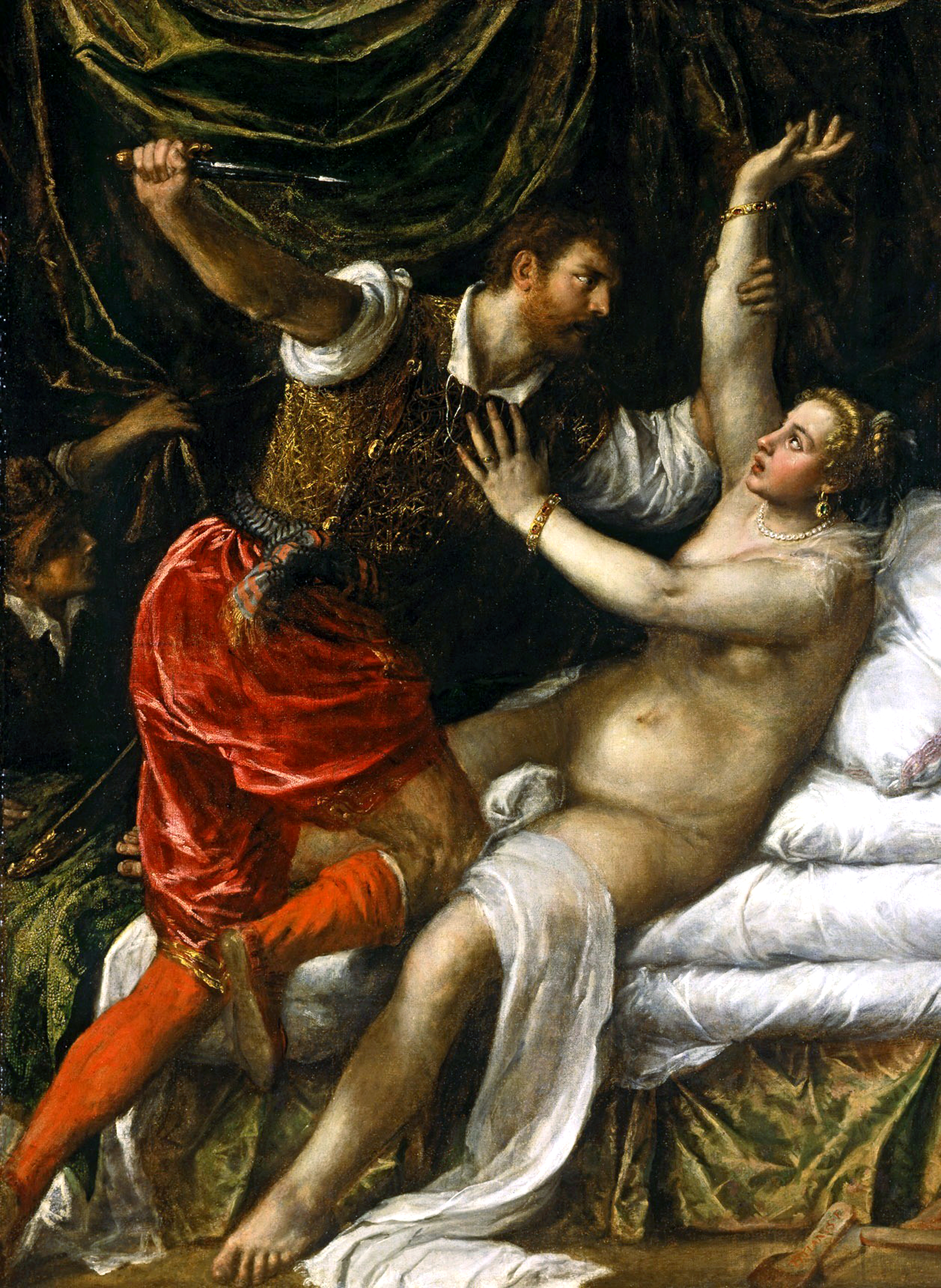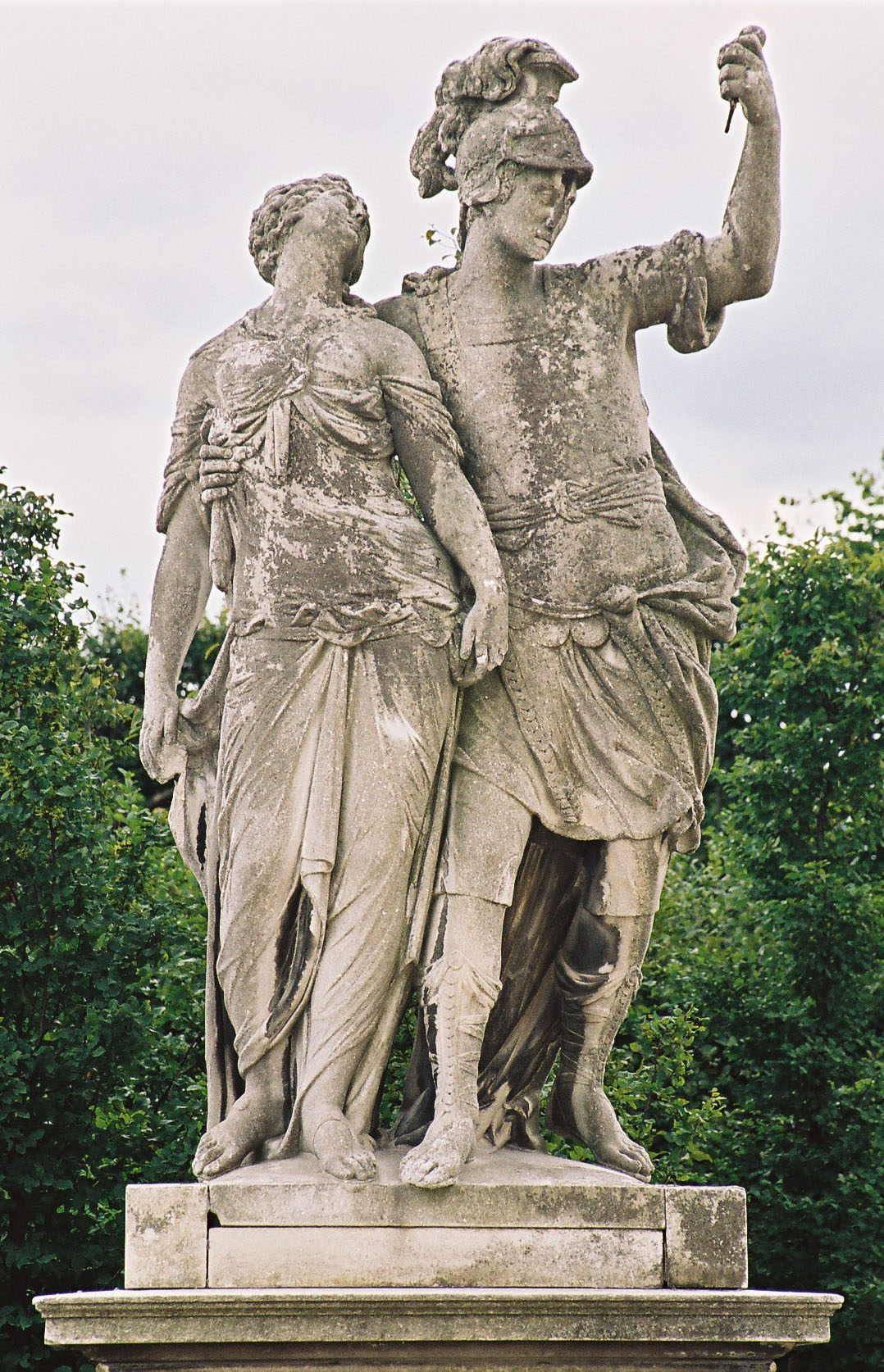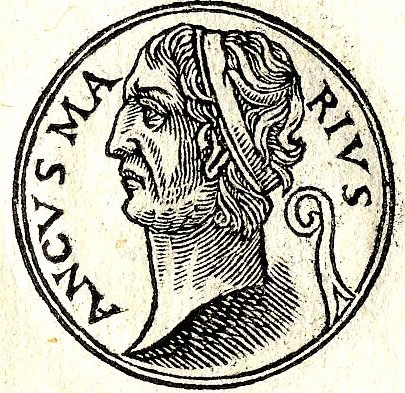|
Demaratus Of Corinth
Demaratus (), frequently called Demaratus of Corinth, was the father of Lucius Tarquinius Priscus, the fifth King of Rome, the grandfather or great-grandfather of Lucius Tarquinius Superbus, the seventh and last Roman king, and an ancestor of Lucius Junius Brutus and Lucius Tarquinius Collatinus, the first consuls of the Roman Republic.''Dictionary of Greek and Roman Biography and Mythology'', vol. III, p. 976 ''ff.'' ("Tarquinius"). Life Demaratus was a Dorian nobleman and a member of the Corinthian house of the Bacchiadae. Facing charges of sedition, in 655 BC he fled to Italy, according to tradition settling in the Etruscan city of Tarquinii, where he married an Etruscan noblewoman. They had two sons, Lucius and Arruns.Livy, ''History of Rome'', i. 34.Dionysius of Halicarnassus, ''Roman Antiquities'', iii. 46, 47. According to tradition, Demaratus introduced Greek culture to mainland Italy, and brought potters from Corinth; Greek potters worked at Tarquinii and its port, ... [...More Info...] [...Related Items...] OR: [Wikipedia] [Google] [Baidu] |
Lucius Tarquinius Priscus
Lucius Tarquinius Priscus (), or Tarquin the Elder, was the legendary fifth king of Rome and first of its Etruscan dynasty. He reigned for thirty-eight years.Livy, '' ab urbe condita libri'', I Tarquinius expanded Roman power through military conquest and grand architectural constructions. His wife was the prophetess Tanaquil. Not much is known about the early life of Lucius Tarquinius Priscus. According to Livy, Tarquin came from Etruria. Livy claims that his original Etruscan name was , but since '' lucumo'' is the latinized form of the Etruscan word "king", there is reason to believe that his name and title have been confused in the official tradition. After inheriting his father's entire fortune, Lucius attempted to gain a political office. However, he was prohibited from obtaining political office in Tarquinii because of the ethnicity of his father, Demaratus, who came from the Greek city of Corinth. As a result, his wife Tanaquil advised him to relocate to Rome. Leg ... [...More Info...] [...Related Items...] OR: [Wikipedia] [Google] [Baidu] |
Tacitus
Publius Cornelius Tacitus, known simply as Tacitus ( , ; – ), was a Roman historian and politician. Tacitus is widely regarded as one of the greatest Roman historians by modern scholars. Tacitus’ two major historical works, ''Annals'' (Latin: ) and the ''Histories'' (Latin: ), originally formed a continuous narrative of the Roman Empire from the death of Augustus (14 AD) to the end of Domitian’s reign (96 AD). The surviving portions of the Annals focus on the reigns of Tiberius, Claudius, Nero, and those who reigned in the Year of the Four Emperors (69 AD). Tacitus's other writings discuss oratory (in dialogue format, see ), Germania (in ''De origine et situ Germanorum''), and the life of his father-in-law, Agricola (the general responsible for much of the Roman conquest of Britain), mainly focusing on his campaign in Britannia ('' De vita et moribus Iulii Agricolae''). Tacitus's ''Histories'' offers insights into Roman attitudes towards Jews, ... [...More Info...] [...Related Items...] OR: [Wikipedia] [Google] [Baidu] |
Sextus Tarquinius
Sextus Tarquinius was one of the sons of the last king of Rome, Lucius Tarquinius Superbus. In the original account of the Tarquin dynasty presented by Fabius Pictor, he is the second son, between Titus Tarquinius, Titus and Arruns Tarquinius (son of Tarquin the Proud), Arruns. However, according to Livy and Dionysius of Halicarnassus, he was either the third or first son, respectively. According to Roman tradition, his rape of Lucretia was the precipitating event in the Overthrow of the Roman monarchy, overthrow of the monarchy and the establishment of the Roman Republic. Early life Not much is known about Sextus Tarquinius' personal life as details about him are overshadowed by his actions. Sextus and his family were of Etruscan civilization, Etruscan descent. According to Livy, Tarquinius Superbus was having problems capturing the town of Gabii, so he sent Sextus to trick them into thinking he was defecting. Sextus became a general in their army before betraying them and ... [...More Info...] [...Related Items...] OR: [Wikipedia] [Google] [Baidu] |
Lucretia
According to Roman tradition, Lucretia ( /luːˈkriːʃə/ ''loo-KREE-shə'', Classical Latin: �ʊˈkreːtia died ), anglicized as Lucrece, was a noblewoman in ancient Rome. Sextus Tarquinius (Tarquin) raped her. Her subsequent suicide precipitated a rebellion that overthrew the Roman monarchy and led to the transition of Roman government from a kingdom to a republic. After Tarquin raped Lucretia, flames of dissatisfaction were kindled over the tyrannical methods of Tarquin's father, Lucius Tarquinius Superbus, the last king of Rome. As a result, the prominent families instituted a republic, drove the extensive royal family of Tarquin from Rome, and successfully defended the republic against attempted Etruscan and Latin intervention. There are no contemporary sources of Lucretia and Tarquin’s rape of her. Information regarding Lucretia, how and when Tarquin raped her, her suicide, and the consequence of this being the start of the Roman Republic come from the accounts of R ... [...More Info...] [...Related Items...] OR: [Wikipedia] [Google] [Baidu] |
Caelius Vibenna
Caelius Vibenna ( Etruscan ''Caile Vipina'') was a noble Etruscan who lived (but see below) and was a brother of Aulus Vibenna ( Etruscan ''Avile Vipina''). Upon arriving at Rome, Vibenna aided Romulus in his wars against Titus Tatius. He and his brother Aulus are also recorded as having aided King Tarquinius Superbus, although Tarquinius Superbus lived some five generations after Romulus. Tacitus relates that a certain hill in Rome, previously named Querquetulanus (after the oak trees covering the hill) was renamed the Caelian Hill after Caelius Vibenna. A burial urn inscribed ''Arnth Caule Vipina'' can be found at Deposito de' Dei at Chiusi, Italy. It is likely that the ashes within belong to a different Etruscan of the same name. In legend Caelius and Aulus Vibenna seem to have been well-known figures in Etruscan legend. Claudius Tiberius Claudius Caesar Augustus Germanicus ( ; ; 1 August 10 BC – 13 October AD 54), or Claudius, was a Roman emperor, ruling from A ... [...More Info...] [...Related Items...] OR: [Wikipedia] [Google] [Baidu] |
Servius Tullius
Servius Tullius was the legendary sixth king of Rome, and the second of its Etruscan dynasty. He reigned from 578 to 535 BC. Roman and Greek sources describe his servile origins and later marriage to a daughter of Lucius Tarquinius Priscus, Rome's first Etruscan king, who was assassinated in 579 BC. The constitutional basis for his accession is unclear; he is variously described as the first Roman king to accede without election by the Senate, having gained the throne by popular and royal support; and as the first to be elected by the Senate alone, with support of the reigning queen but without recourse to a popular vote. Several traditions describe Servius' father as divine. Livy depicts Servius' mother as a captured Latin princess enslaved by the Romans; her child is chosen as Rome's future king after a ring of fire is seen around his head. The Emperor Claudius discounted such origins and described him as an originally Etruscan mercenary, named Mastarna, who fou ... [...More Info...] [...Related Items...] OR: [Wikipedia] [Google] [Baidu] |
Collatia
Collatia was an ancient town of central Italy, c. 15 km northeast of Rome by the ''Via Collatina''. It appears in the legendary history of Rome as captured by King Tarquinius Priscus. Vergil speaks of it as a Latin colony of Alba Longa. In the time of Cicero it had lost all importance; Strabo names it as a mere village, in private hands, while for Pliny it was one of the lost cities of Latium. According to Livy, it was taken, along with its population and surrounding land, from the Sabines by Tarquinius Priscus at the conclusion of his war against them. Livy records the wording of the form of the town's surrender. The date of Tarquinius' triumph over the Sabines, according to the Fasti Triumphales, which Livy says occurred shortly after the surrender of Collatia, is 13 September, 585 BC. By 509 BC the town was governed by the Roman Lucius Tarquinius Collatinus, who took his name from the town. It was the site of the rape of Lucretia in that year, and Livy record ... [...More Info...] [...Related Items...] OR: [Wikipedia] [Google] [Baidu] |
Latins (Italic Tribe)
The Latins (), sometimes known as the Latials or Latians, were an Italic peoples, Italic tribe that included the early inhabitants of the city of Rome (see Roman people). From about 1000 BC, the Latins inhabited the small region known to the Romans as Old Latium (in Latin ''Latium vetus''), the area in the Italian Peninsula between the river Tiber and the promontory of Mount Circeo southeast of Rome. Following the Roman expansion, the Latins spread into the Latium adiectum, inhabited by Osco-Umbrian languages, Osco-Umbrian peoples. Their language, Latin, belonged to the Italic languages, Italic branch of Indo-European. Speakers of Italic languages are assumed to have migrated into the Italian Peninsula during the late Bronze Age (1200–900 BC). The material culture of the Latins, known as the Latial culture, was a distinctive subset of the proto-Villanovan culture that appeared in parts of the Italian peninsula in the first half of the 12th century BC. The Latins mai ... [...More Info...] [...Related Items...] OR: [Wikipedia] [Google] [Baidu] |
Ancus Marcius
Ancus Marcius () was the Roman mythology, legendary fourth king of Rome, who traditionally reigned 24 years. Upon the death of the previous king, Tullus Hostilius, the Roman Senate appointed an interrex, who in turn called a session of the Roman assemblies, assembly of the people who elected the new king. Ancus is said to have ruled by waging war as Romulus did, while also promoting peace and religion as Numa Pompilius did. Ancus Marcius was believed by many Romans to have been the namesake of the Marcia gens, Marcii, a plebeian family. Background Ancus was the son of Numa Marcius (prefect), Marcius (himself the son of Rome's first ''pontifex maximus'' Numa Marcius) and Pompilia (daughter of Numa Pompilius), Pompilia (daughter of Numa Pompilius).Livy, ''Ab urbe condita libri (Livy), Ab Urbe Condita'', s:From the Founding of the City/Book 1#32, 1:32 Ancus Marcius was thus the grandson of Numa and therefore a Sabines, Sabine. According to Festus (historian), Festus, Marcius was sur ... [...More Info...] [...Related Items...] OR: [Wikipedia] [Google] [Baidu] |
Tanaquil
Tanaquil (; Etruscan: ''Thanchvil'') was the queen of Rome by marriage to Tarquinius Priscus, the fifth King of Rome. Life The daughter of a powerful Etruscan family in Tarquinii, Etruria, Tanaquil thought her husband would make a good leader, but since he was the son of an immigrant, he would not be able to gain power in Tarquinii, where they lived. Knowing this, Tanaquil encouraged him to move to Rome, which was not at the time dominated by a strong local aristocracy. Her prophetic abilities helped her to install Tarquin as king and later Servius Tullius as the next king. While on the road to Rome, an eagle flew off with Tarquin's hat and then returned it to his head. Tanaquil interpreted this as a sign that the gods wanted him to become a king.Livy, ''History of Rome'', i. 34. Tanaquil's prophecy was eventually realized for Tarquin—he eventually became friends with King Ancus Marcius, who made Tarquin guardian of his children. When the king died before his children wer ... [...More Info...] [...Related Items...] OR: [Wikipedia] [Google] [Baidu] |
Arruns Tarquinius (Egerius)
Arruns Tarquinius, commonly called Egerius, was a member of the royal family of early Rome. His father was Arruns Tarquinius, son of Demaratus of Corinth. Demaratus had settled at Tarquinii during the seventh century BC, and married an Etruscan noblewoman. They had two sons, Lucius and Arruns. Arruns died shortly before his father, leaving his wife pregnant. Not knowing of his grandson, Demaratus left him no inheritance, and so Arruns was born into poverty despite his grandfather's wealth. For this reason, the child was called ''Egerius'', meaning "the needy one."''Dictionary of Greek and Roman Biography and Mythology'', vol. III, p. 976 ("Tarquinius"). At the urging of his wife, Tanaquil, Lucius Tarquinius migrated to Rome, where he found favour with the king, Ancus Marcius. Ultimately, Tarquin succeeded Marcius as the fifth King of Rome. After subduing the Latin town of Collatia, Tarquin placed his nephew in command of the Roman garrison there. Arruns' son was Luci ... [...More Info...] [...Related Items...] OR: [Wikipedia] [Google] [Baidu] |
Tarquinia Gens
The gens Tarquinia was a plebeian family at ancient Rome, usually associated with Lucius Tarquinius Priscus and Lucius Tarquinius Superbus, the fifth and seventh Kings of Rome. Most of the Tarquinii who appear in history are connected in some way with this dynasty, but a few appear during the later Republic, and others from inscriptions, some dating as late as the fourth century AD. Origin The legendary origin of the Tarquinii who reigned at Rome begins with Demaratus of Corinth, a member of the house of the Bacchiadae at Corinth, which was expelled in 657 BC. Demaratus settled at Tarquinii in Etruria, where he married an Etruscan noblewoman, and had two sons, Lucius and Arruns, who took the surname ''Tarquinius'' after the town of their birth. Denied political advancement due to his father's foreign birth, Lucius, encouraged by his wife, Tanaquil, determined to settle at Rome, where he could hope to attain high station based solely on his merits. He fell into the retin ... [...More Info...] [...Related Items...] OR: [Wikipedia] [Google] [Baidu] |









